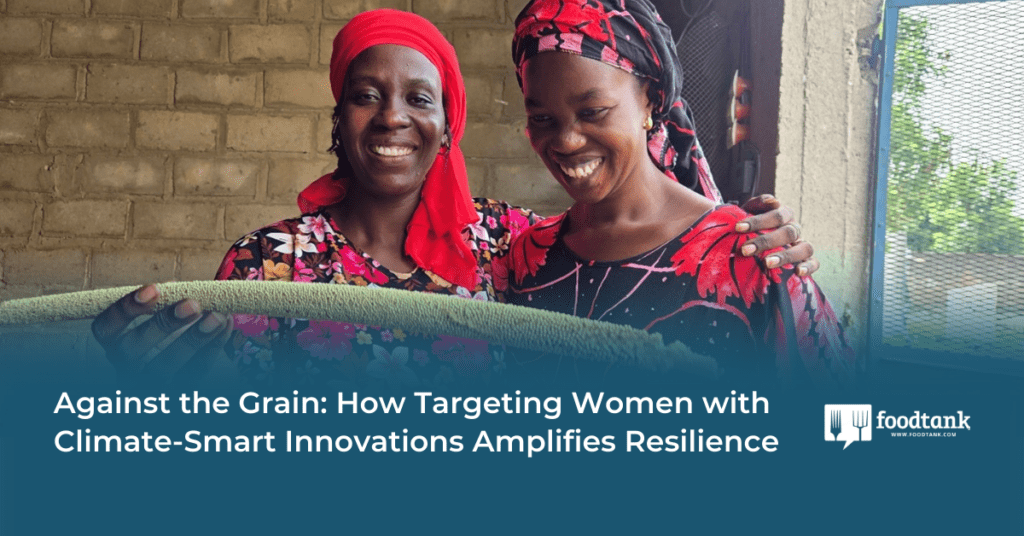The Importance of Connection in Senegalese Villages
In a Senegalese village, connection is evident everywhere you look. Imagine farmers gathering beneath a mango tree, savoring the afternoon pot of attaya (tea). Children from all over the community flock together around a soccer ball, inspired by the dream of becoming the next Sadio Mané. Women chatting at the well take a bit longer than necessary, sharing stories under the hot Senegalese sun while extracting not just water, but also information, gossip, and laughter.
This vibrant scene embodies the essence of Senegal, known locally as Sunuu Gal, which translates to “one canoe” in the Wolof language. The term encapsulates the spirit of unity and togetherness inherent in the culture—an integral part of the nation’s identity.
Challenges Facing Women in Climate Adaptation
However, when it comes to climate-smart innovations to combat frequent droughts, heat waves, and unpredictable rainfall, many women are at risk of being left behind. Farmer cooperatives, which provide access to seeds, vital information, and training, often remain male-dominated, significantly limiting women’s participation and leadership in these crucial areas.
The root of this gender gap lies in various socioeconomic and cultural factors. Consequently, Senegalese women generally lack the same access as men to transformative seeds, climate information, and training necessary for adapting to new agricultural realities.
Mabo: A Beacon of Change
In Mabo, a thriving village in Senegal’s Peanut Basin, this narrative is changing. This year, 86 women have joined the Mabo Network of Local Cereal Producers, nearly half of the newly registered members. This shift counters the historical trend of low female participation, setting a transformative precedent amidst predominately male cooperatives.
To unravel this progress, a conversation with the local women reveals the forces at play. Mbathio Mbaye, a farmer and mother of three, cradles her one-month-old baby as she shares her journey with the cooperative and the advancements she’s seen in her field and family.
A pivotal project, led by the Accelerating Impacts of CGIAR Climate Research for Africa (AICCRA), has united various organizations to provide women like Mbathio the tools needed to adapt to Mabo’s evolving climate.
Facing Climate Challenges Together
“I was born and raised here in Mabo, farming since I was very young,” Mbathio explains. “Today, the climate is changing—rains no longer start or end as they used to, affecting crop growth and maturity.” These challenges are pervasive across Senegal and West Africa, where erratic weather patterns make agricultural planning exceptionally difficult for the majority of the population who rely on rainfed agriculture.
Improving Lives Through Empowerment
In Mabo, AICCRA and the National Agency for Agricultural and Rural Council (ANCAR) have collaborated to deliver certified millet seeds while ensuring they are multiplied for neighboring communities. This initiative includes tailored, location-specific climate data, allowing women farmers to determine the optimal times for planting and other crucial activities.
Mbathio highlights the knowledge she has gained: “We didn’t understand the improved climate-adapted seeds, and we used to plant without knowing how the weather would behave. This project has truly changed everything,” she says, emphasizing the importance of the way these initiatives are executed, particularly in addressing women’s needs.
The Impact of Women Empowering Women
With Jokalante, a social enterprise founded by rural Senegalese woman Ndeye Amy Kebe, timely agronomic advice is accessible via text and voice calls, accommodating illiterate women. The approach of intentionally targeting women’s cooperatives ensures that knowledge and resources reach more women and their families.
Fatou Mbaye, Mbathio’s sister, epitomizes the idea that empowering women creates ripple effects throughout the community. “If my sister hadn’t invited me to join, I might never have entered the group,” Fatou shares. Her experience showcases how collective knowledge can elevate community dynamics, adaptability, and resilience.
Transforming Households and Communities
With improved access to resources, both sisters are witnessing tangible changes in their lives. Increased earnings from climate-adapted millet and the newfound ability to contribute financially to their household enables them to invest in education, health, and personal ventures like a market shop, giving Fatou a sense of empowerment she previously lacked.
“Before AICCRA, I was confined to household duties, with my husband handling all decisions,” Fatou reflects. “Now, my husband values my input, and together we discuss decisions. I’ve invited friends to the group, too!”
The Growing Network of Women
The Mabo Network of Local Cereal Producers has now expanded to 200 women members, marking a significant leap towards increased and equitable access to climate-smart innovations. The spirit of connection resonates beyond Mabo, influencing smaller cooperatives in surrounding villages.
Amy Ndaue, a member from Ngoui village, echoes the positive ripple effect: “Last year, I wasn’t part of the cooperative and lost my fertilizer due to heavy rains. This year, thanks to timely messages from Jokalante, I applied my fertilizer correctly, which has significantly boosted my yield.” Vivid connections among women through shared resources highlight the power of solidarity in overcoming climate challenges.
Ultimately, the transformative impact of connecting women—through seeds, information, and shared experiences—demonstrates that resilience in rural Senegal is not just about resources, but about the strength of community and collaboration.


